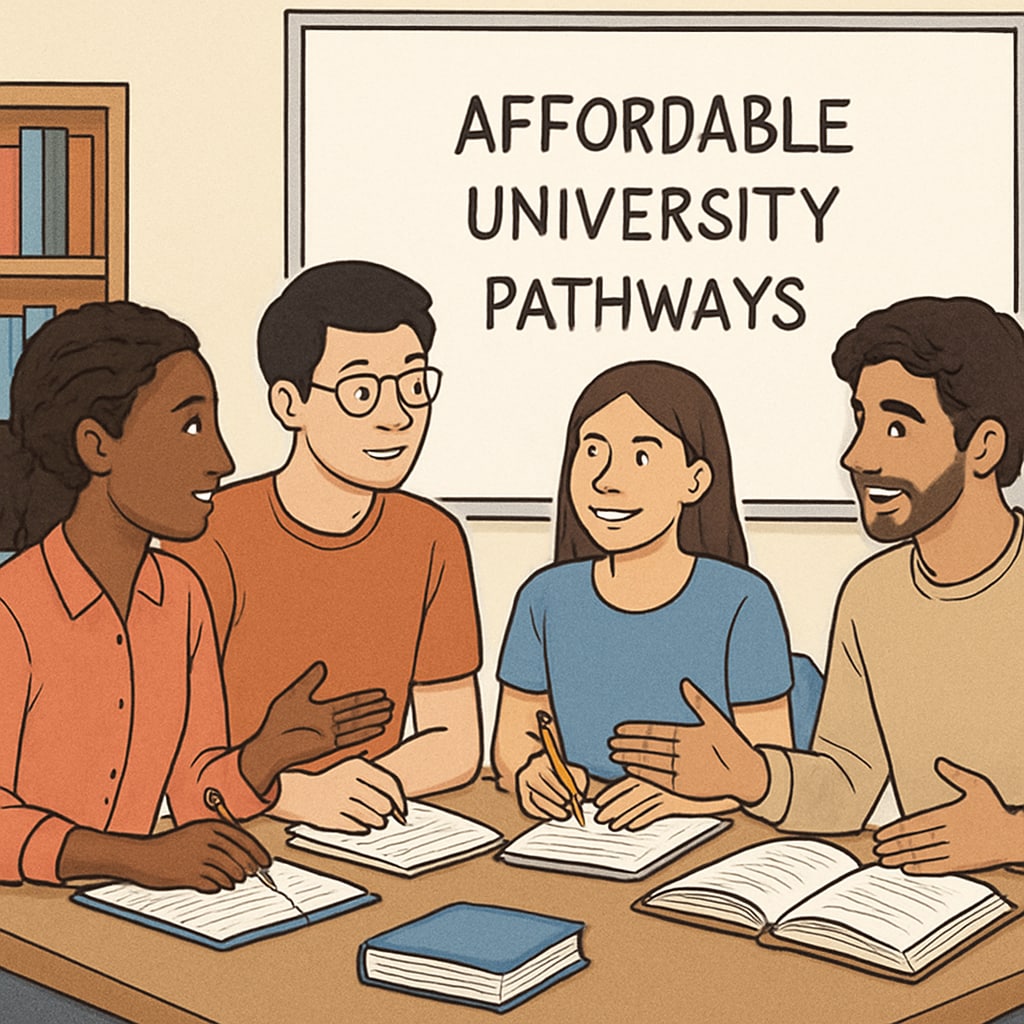For students holding AS-level qualifications, navigating university admissions can be a challenging task, particularly when working within a limited budget. However, there are various strategies that can help these students break through traditional barriers and secure a place at institutions without overspending. This article explores practical approaches such as diverse admission pathways, scholarship opportunities, and alternative study options for students seeking affordable university education.
Understanding Admission Pathways for AS-Level Students
Many universities have flexible admission policies that cater to students with AS-level qualifications. While some institutions may traditionally require A-levels, others offer alternative pathways such as foundation courses, bridging programs, or credit transfer systems. These options can provide entry points for students who have completed their AS-levels, helping them progress toward a degree without needing full A-level certification.
- Foundation Courses: Designed to help students meet entry requirements for undergraduate programs.
- Bridging Programs: Transitional courses that build on existing qualifications.
- Credit Transfer Systems: Some universities allow students to transfer credits from AS-level studies to undergraduate programs.
For example, universities in countries like Malaysia and Canada are known for offering flexible entry requirements and budget-friendly tuition fees. Exploring international options may open doors to affordable education opportunities.

Leveraging Scholarships and Financial Aid
Scholarships and financial aid can significantly reduce the cost burden for students pursuing higher education. Many universities offer merit-based or need-based scholarships specifically aimed at international students or those with AS-level qualifications. Conducting thorough research and applying early can increase the chances of securing funding.
- Merit-Based Scholarships: Awarded to students with outstanding academic or extracurricular achievements.
- Need-Based Aid: Designed for students with financial constraints to cover tuition, accommodation, and other expenses.
- Country-Specific Programs: Certain governments and organizations provide funding opportunities for international students.
Online platforms such as Scholarships.com and Chegg Scholarships offer extensive databases for searching scholarships tailored to specific needs. These resources can help students identify funding opportunities that align with their academic background and financial situation.

Exploring Alternative Education Options
In addition to traditional university programs, there are alternative pathways that can provide quality education at a lower cost. Online degree programs, community colleges, and technical schools are viable options for students seeking affordable education while holding AS-level qualifications.
- Online Degree Programs: Offered by reputable institutions, allowing students to study remotely and save costs on accommodation and commuting.
- Community Colleges: Provide affordable tuition rates and the opportunity to transfer to universities after completing associate degrees.
- Technical Schools: Focus on skill-based education, preparing students for specific career paths without the need for conventional degrees.
For instance, platforms like edX and Coursera host online courses and degree programs from top universities worldwide, offering flexible and affordable education alternatives.
These options not only reduce the financial strain but also provide a tailored approach to learning based on individual goals and career aspirations.
Key Takeaways for AS-Level Students
While AS-level qualifications may limit traditional university choices, there are plenty of viable alternatives that can lead to affordable higher education. By exploring flexible admission pathways, leveraging scholarships, and considering alternative education options, students can create a practical and cost-effective roadmap to achieving their academic goals.
Remember to research thoroughly, plan ahead, and remain open to non-traditional opportunities. Education is not a one-size-fits-all journey, and with the right approach, achieving success without breaking the bank is entirely possible.
Readability guidance: Short paragraphs and clear headings structure the content for easy navigation. Lists summarize key points, while overused jargon is minimized to ensure accessibility. Transition words create smooth flow throughout the article.


